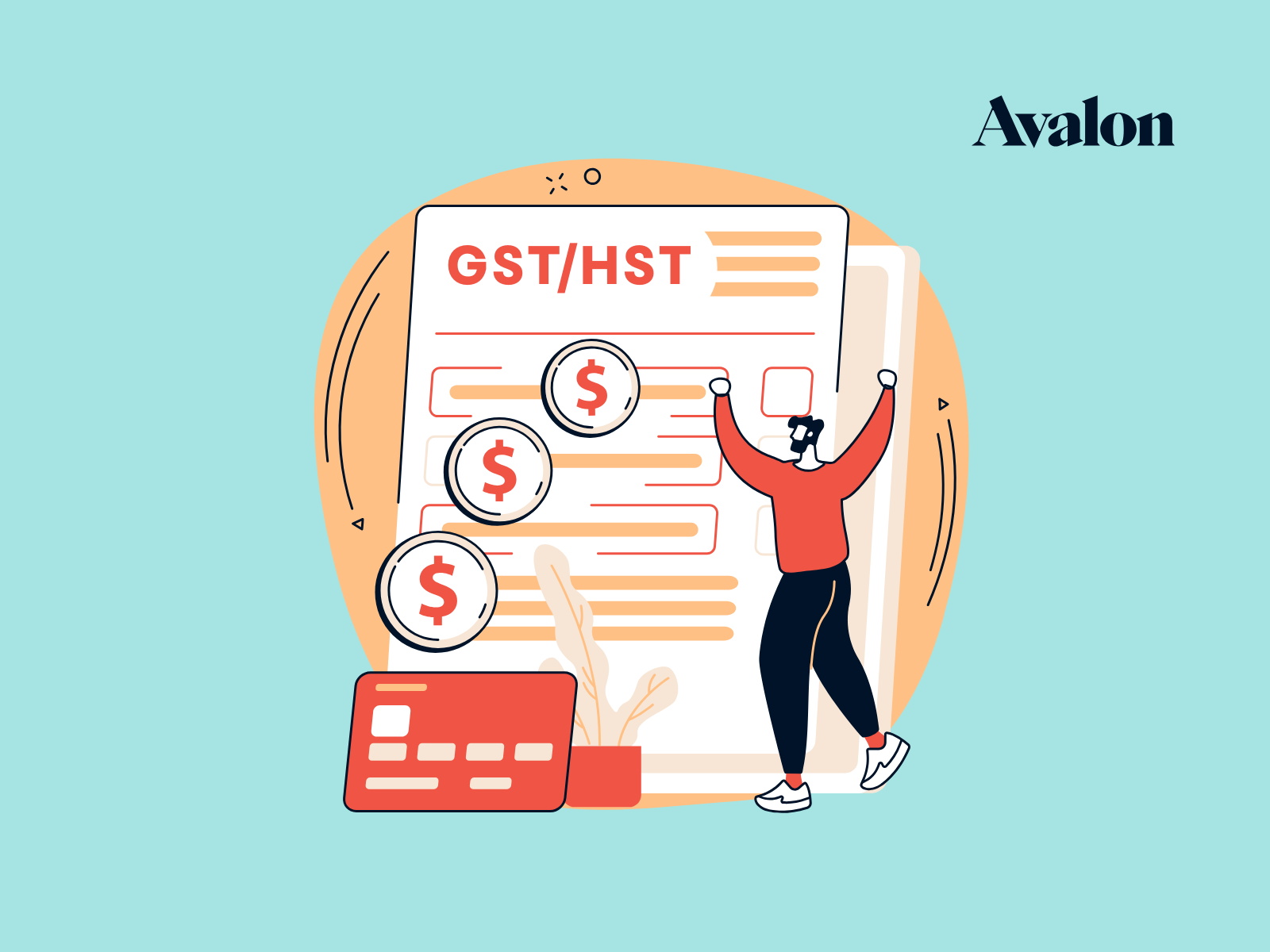In the past, we’ve discussed bookkeeping at length. We have created an in-depth bookkeeping guide, explained why bookkeeping is important, talked about bookkeeping services, and looked at how much bookkeeping costs.
Now we’ve distilled down our best bookkeeping advice into bookkeeping basics 101 — bookkeeping tips you can’t ignore. Take five minutes to read through the seven most important bookkeeping lessons we’ve come across, or ignore at your peril.
1. Get a Separate Bank Account for Business
Do not mix your personal and business transactions in the same bank or credit card account. Don’t do it — not at all. If you currently have a credit card or bank account for business and personal transactions, stop reading this and go open separate business accounts.
Ok, well, maybe read to the bottom to see the rest of the tips and then go open those accounts.
There are plenty of inexpensive business chequing accounts and no-fee credit cards you can use. We use CIBC for Avalon’s accounts, but we’ve found you can find good deals on business accounts at many banks and credit unions.
If you take one thing away from this article, let it be this — get separate business bank and credit card accounts.
2. Avoid Using Cash Where Possible
Paying for expenses with cash is easy at that moment, but it complicates things for bookkeeping.
Paying for expenses with cash makes it more difficult to ensure you record all costs. If you miss out expenses, you will pay more taxes — that’s not good.
For example, when you’re buying some supplies at the store and you pay with cash, the only thing that exists as a record of that transaction is the paper receipt. If you’re anything like me, you can get distracted, crumple up the receipt and shove it into your pocket. Who knows what happens to it after that.
When you go to do your bookkeeping, you record all of the transactions from your bank account and credit card, but that cash purchase doesn’t show up anywhere. If you are doing your bookkeeping a month down the road from a cash purchase, what do you think the chances are that you will remember to record it? Probably not great.
Stick to using your credit card or debit card where possible. Even if you forget the paper copy of your receipt in your jacket pocket, you’ll have the transaction recorded on your statements. Plus, if you use your credit card, you can earn points to put towards other things — it’s a win/win.
3. Keep It Simple
There is a certain segment of people — myself included — who tend to dive into things full steam ahead, looking for the best, most robust solution to a problem. If I’m buying something or looking for new software, I tend to do a bunch of research and settle on the thing with all of the bells and whistles to make sure I’m not missing out.
Simple System
But buying software that offers everything is not usually the best approach when it comes to determining the best way to do your bookkeeping. If you have a straight-forward business and just need to track your revenue and expenses, you probably don’t need Netsuite. It’s quite possible to do your bookkeeping with a simple Google Sheet bookkeeping template.
Simple Bookkeeping
The other simplifying thing I recommend is to keep your chart of accounts simple. We often see people use 50-60 expense accounts, which can make financial statements pretty difficult to read.
A common example is vehicle expenses that look like this:
- Vehicle — Fuel
- Vehicle — Insurance
- Vehicle — Parking
- Vehicle — Repairs
- Vehicle — Registration
If it truly is helpful for you to understand vehicle costs in this much detail, then do it. Otherwise, just stick with one vehicle expense account. This approach applies to insurance, office expenses, people costs, advertising, etc.
If you’re creating a new account to record a transaction, make sure you know why you want to break it down separately.
Keeping things simple will help you be efficient and make sure you actually do your bookkeeping. If you’re anything like me, you push the more complicated tasks onto the backburner and tackle the less brain-hurting ones first.
Keep it simple for great success!
4. Make Smart Use of Technology
We love technology when it helps us do things better or more efficiently. However, we don’t push the implementation of technology just for technology’s sake. There has to be a good use for it and it needs to make things easier.
Luckily for us, there is some really great tech that will help make bookkeeping more efficient, and some of our clients have even said more fun!
Receipt Bank
If you struggle with documents filling up your filing cabinets or getting shoved into a shoebox, Receipt Bank can help.
Receipt Bank is a software application that allows business owners to capture and store their receipts electronically. Supporting documentation is securely stored electronically, so it’s available on any computer or connected device — no more need for the shoebox full of receipts.
After making a purchase, you just upload the receipt to Receipt Bank. The software then uses optical character recognition to extract information from the document. No more manual entry and no more accidentally adding an extra zero to the end of a transaction amount.
Receipt Bank acts as your self-sorting electronic filing cabinet. You can get rid of the paper copies once you have uploaded them to Receipt Bank.
Check out our full guide on Receipt Bank here.
Xero or QuickBooks Online (QBO)
Bookkeeping software has made some big leaps over the last ten years. The advent of cloud-based software has improved access to user-friendly bookkeeping software.
You can now access your bookkeeping system from any computer, tablet or phone with an internet connection. The two leaders in this space are Xero and Quickbooks Online. We use Xero exclusively with our clients, but you could do well with whichever application suits you better. Check out our comparison of Xero and QBO to help determine the one you should use.
Xero and QBO automate a lot of data entry and can also learn from you to start automatically categorizing transactions. They connect to your online banking, cutting down the process of doing a bank reconciliation to just comparing the number in your software matches to the number in your bank account.
Make smart use of technology to speed up your bookkeeping and minimize errors.
5. Make It a Habit to Keep Your Bookkeeping Up-To-Date
Another part of making sure you do your bookkeeping is getting into a rhythm. If you can make it a habit to do your bookkeeping regularly, then you won’t find yourself months behind and dreading the task.
I know some of our bookkeeping support clients have a set time each week that they dedicate to bookkeeping tasks. They spend 30 minutes or so every week and keep things up-to-date. These are the people who benefit the most from their bookkeeping because they can see exactly how their business is performing at any given time.
Other people work better when they set aside time every quarter to do their bookkeeping. This isn’t as good as the weekly or monthly schedule, but at least if it’s a habit, then you know the bookkeeping will get done.
Without regularly working on your bookkeeping, the time it takes to get caught up increases and the more the task becomes a burden. It’s not uncommon to see business owners with years of bookkeeping outstanding. This means they haven’t filed their tax returns and are under a lot of stress because the CRA is calling them about it.
6. Find Some Accountability
No accounting-related pun intended here. Find some way to keep accountable, so your bookkeeping is completed regularly.
The easiest way to do this is to have someone on your team who can help keep you accountable. Whether it’s a business partner or just a team member who you task with the job of checking in with you, having someone other than yourself aware of the bookkeeping requirement can help keep you on task.
A great example is this article I’m writing here. We have an external company that helps us with our marketing efforts. I received an email from Laura this morning (thanks, Laura!), reminding me that I had an article due today. If she hadn’t sent me that email, I guarantee I would have put this off and who knows when I would have gotten to it.
Get your own Laura and stay accountable!
7. Know When to Hire a Bookkeeper
You can save a bit of cash by doing your own bookkeeping, but the tradeoff is it costs your time. If bookkeeping just isn’t your forte, or you are too busy building the business of your dreams, then it may be time to hire a bookkeeper.
The best advice I can give here is to know yourself.
Can you keep a rhythm up and do the work regularly?
If you are happy doing your bookkeeping and are learning about your business’ finances by actually diving into the nitty-gritty details, then DIY is probably good for you.
If you think you will fall behind or you are not interested in doing the work, it might be good to hire someone to look after it for you.
Avalon Can Help
If you’re at the point where you want to hire a bookkeeper, we are here to help.
We love helping to remove the stress bookkeeping causes you. We can help save you time and make sure you’re free to look after the things you’re great at — the things that help your business grow and be successful.
If bookkeeping is a pain point for you, then please reach out and have a chat with us. We have different options for bookkeeping services and we also offer set-up and training packages if you would prefer to learn how to do your own bookkeeping.












